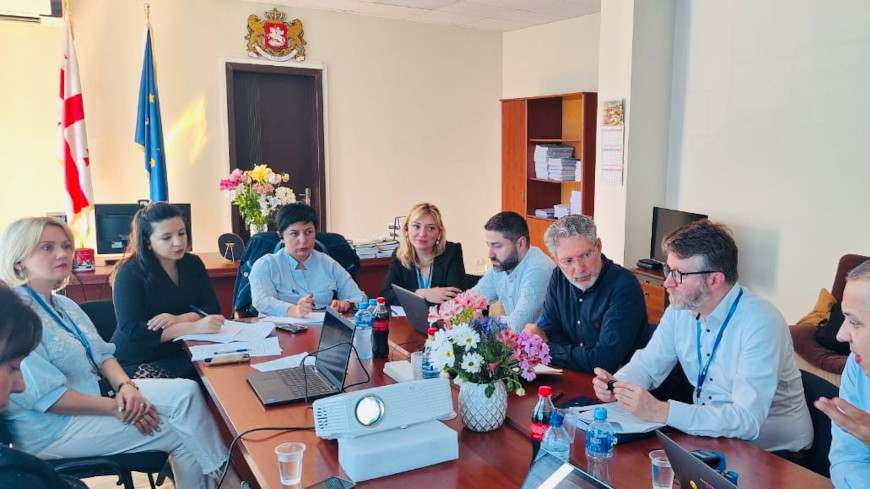The court coaching programme of European Commission for the Efficiency of Justice (CEPEJ) continued from 16 to 17 May 2024, representatives from the Batumi City court attended a two-day workshop on the CEPEJ Backlog reduction tool. The workshop aimed to introduce the court representatives to the tool and support its implementation.
Statistical analyses conducted beforehand enabled experts to give a contextualised presentation of this practical tool and propose tailor-made recommendations to the Batumi City Court representatives. By identifying areas where backlogs are formed, understanding the underlying causes, based on the tool approaches adaptable to the specific circumstances of the court, rather than a fixed set of solutions will be offered. Measures to address backlogs in Batumi City Court and follow-up activities were discussed which would lead to the development of a concrete Action Plan in co-operation with the project experts (developing operation plans, strengthening monitoring mechanism, conducting capacity building measures…).
This activity is part of the court coaching programme conducted by CEPEJ in four pilot courts : the Supreme Court of Georgia, Rustavi City Court, Zugdidi District Court and the Batumi City Court. CEPEJ experts carried out in 2023 an in-depth assessment of the specific needs of the Batumi City Court, via interviews with their presidents and staff. This assessment led to the elaboration of a set of recommendations aimed at modernising and improving the management of these courts, to be then implemented as part of the court coaching programme.
On this occasion, the experts presented the methodologies and tools developed by the CEPEJ, familiarising the courts with best practices and experiences aimed at improving court management, such as promoting the quality of justice and the courts, carrying out user satisfaction surveys, improving judges' know-how and interpersonal skills, sharing knowledge and collaboration, analysing judicial data, reducing backlogs, judicial communication and mediation.
The implementation of the court coaching programme under the CEPEJ project in Georgia represents a crucial step forward in the ongoing efforts to modernise and strengthen the Georgian judicial system.
This event is part of the European Union and the Council of Europe joint programme “Partnership for Good Governance”, co-funded by the European Union and the Council of Europe, and implemented by the Council of Europe, in the framework of the project “Support to modernisation of court management in Georgia”.





